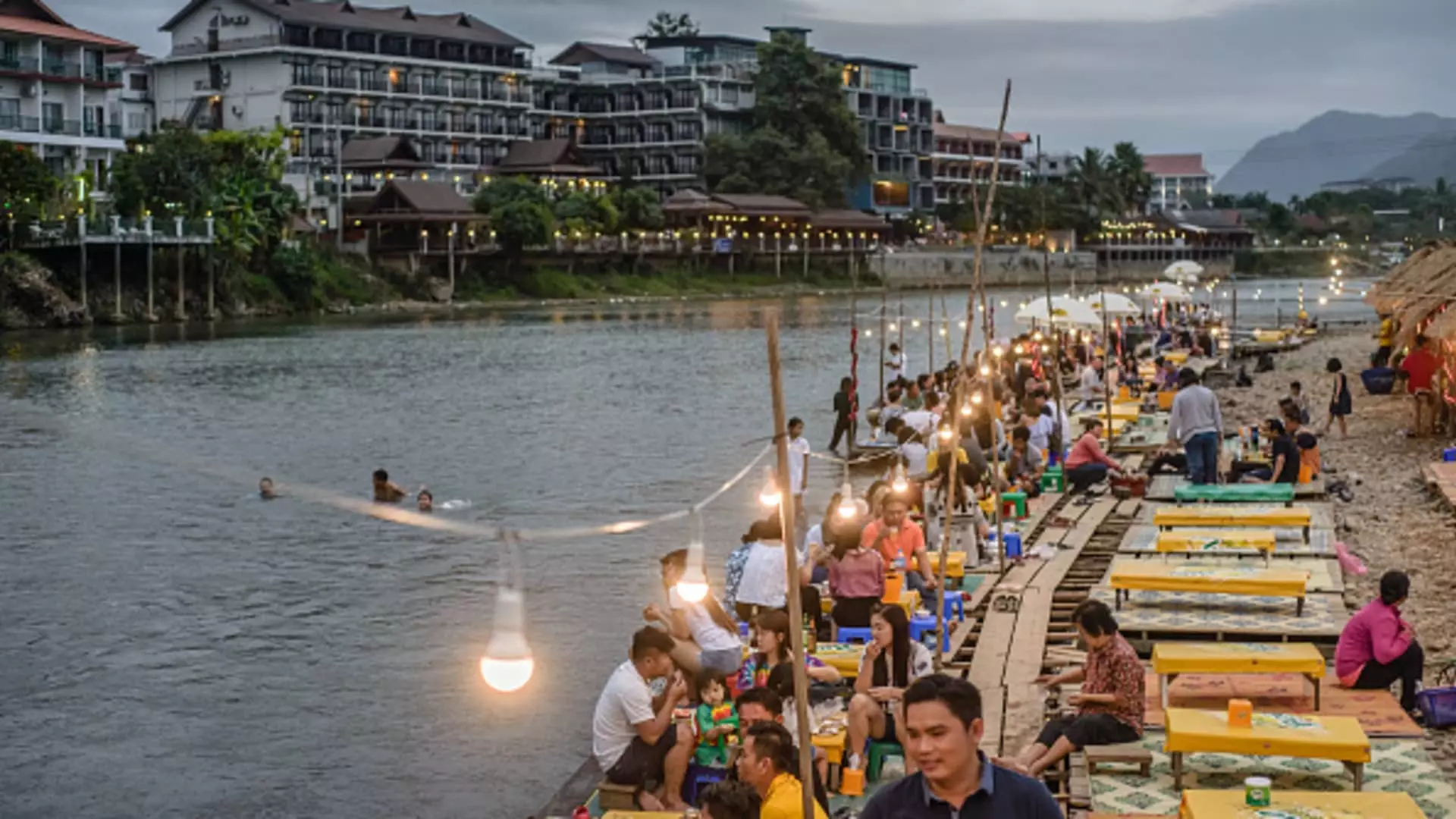The rising popularity of travel has introduced myriad experiences to tourists eager to savor local cultures, from unique culinary adventures to the vibrant nightlife in foreign cities. However, amid the allure of seemingly festive environments lies a grave and often overlooked danger—methanol poisoning. Recent events in the tourist hotspot of Vang Vieng, Laos, highlight the dire necessity for increased awareness and preventive measures surrounding this lethal substance.
In November 2023, six travelers tragically lost their lives due to suspected methanol poisoning after indulging in local libations in Vang Vieng. Among the deceased were individuals representing two Australians, two Danes, one Briton, and one American. These unfortunate visitors allegedly consumed alcohol that had been tainted with methanol, a toxic form of alcohol that is sometimes illegally mixed with or substituted for standard alcoholic beverages to reduce costs. Reports indicated that a total of fourteen people experienced illness following a night out around November 12, showcasing the extent of the problem and the fragility of travelers’ safety.
What is particularly alarming about this incident is the nature of methanol itself. Unlike ethanol, which is the drinkable type of alcohol found in most beverages, methanol is colorless and odorless, making it an insidious threat. Just thirty milliliters of methanol can be lethal; even consuming as little as ten milliliters can result in permanent blindness. This makes even the slightest miscalculation during consumption incredibly dangerous.
The focus on methanol poisoning as a significant public health concern has been notably minimal, despite its increasing prevalence. According to organizations like Doctors Without Borders, since 2019, there have been nearly a thousand documented incidents of methanol poisoning affecting over 39,000 individuals, leading to around 12,900 deaths. This alarming statistic serves as a stark reminder that education and awareness are critically lacking on a global level.
Incidents of methanol poisoning are particularly common in Southeast Asia, where tourists have often fallen victim to contaminated local spirits. For instance, the dangerously high number of cases reported in Bali, Indonesia, due to improperly distilled arak—a traditional alcoholic beverage—demonstrates the urgent need for travelers to exercise caution in unfamiliar environments. Increasingly, serious health advisories are being issued, warning that many foreign tourists are unaware of the risks associated with consuming alcohol in informal settings or from unlicensed providers.
The issue of methanol poisoning is not confined to the recent tragedies in Laos. In 2020, a mass incident in Iran resulted in more than 5,800 poisonings, with approximately 800 fatalities. This surge was partly triggered by widespread misconceptions that consuming methanol could cure or ward off the COVID-19 virus—a stark illustration of how misinformation can lead to catastrophic results.
As highlighted by advocacy groups, a lack of knowledge within both the general public and medical professionals exacerbates the problem. Many symptoms of methanol poisoning, such as vomiting and drowsiness, can easily be mistaken for common ailments like food poisoning or hangovers. This can lead to delayed treatments and unreported cases, creating a compounding public health risk.
As surely as enjoyment should be part of travels, responsible drinking should accompany those experiences. Travelers venturing into regions where alcohol safety is questionable should heed the advice of health authorities and local guidelines. Recommendations include steering clear of alcohol procured from informal sources, avoiding drinks that are served in unlabeled containers, and being particularly cautious with cocktails or mixed spirits.
Online platforms such as “Just Don’t Drink Spirits in Bali” have emerged to inform tourists about safe drinking practices, advocating for beer, cider, or wine over riskier choices that might harbor hidden toxins. The message remains clear: while the thrill of travel can often seem enticing, the consequences of uncalculated risks can be both devastating and irreversible.
Ultimately, to combat the lethal potential of methanol poisoning, it’s essential that tourists adopt an informed and cautious approach to alcohol consumption, and that local authorities prioritize public health regulations surrounding the sale and distribution of alcoholic beverages.

